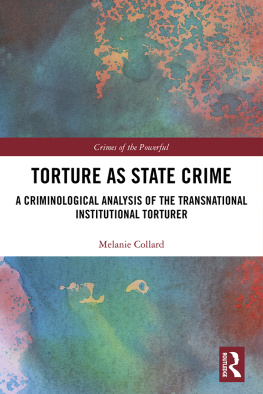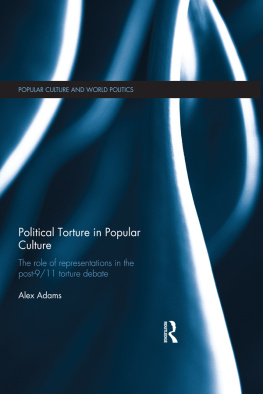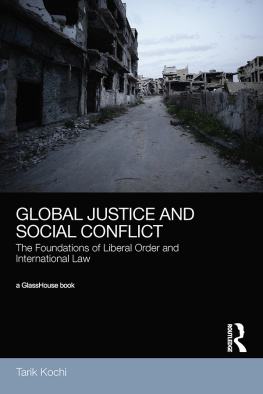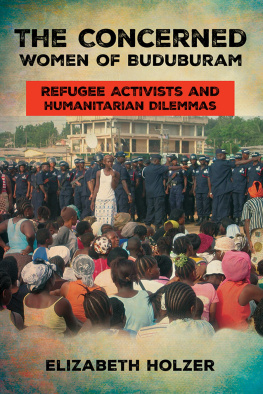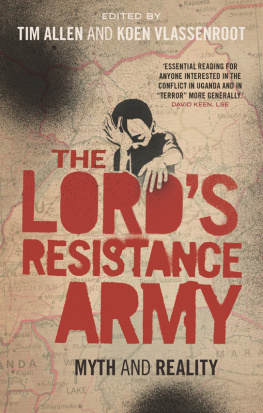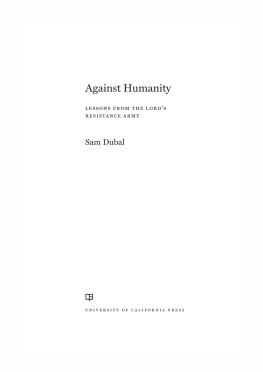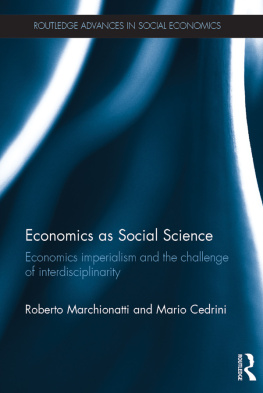
Human Rights in Context
Research on human rights, or social and political issues closely related to human rights, is nowadays carried out in many academic departments, from law to anthropology, from sociology to philosophy. Yet, there is surprisingly little communication amongst scholars working in these different disciplines, and research that takes more than one perspective into account is seldom encouraged. This new series aims to bridge the divide between the social sciences and the law in human rights scholarship.
Books published in this series will be based on original empirical investigations, innovative theoretical analyses or multidisciplinary research. They will be of interest to all those scholars who seek an audience beyond the confines of their academic subjects.
Volume 1
BETWEEN BOMBS AND GOOD INTENTIONS
The Red Cross and the Italo-Ethiopian War, 19351936
Rainer Baudendistel
Volume 2
ADVANCING REFUGEE PROTECTION IN SOUTH AFRICA
Edited by Jeff Handmaker, Lee Anne de la Hunt and Jonathan Klaaren
Volume 3
BEYOND PRISON
The Fight to Reform Prison Systems around the World
Ahmed Othmani
Volume 4
SOCIAL TORTURE
The Case of Northern Uganda, 19862006
Chris Dolan
Volume 5
CONSTITUTIONALISM AND SOCIAL JUSTICE IN SOUTH AFRICA
Andrea Lollini
SOCIAL TORTURE
The Case of Northern Uganda
19862006
Chris Dolan
First published in 2009 by
Berghahn Books
www.berghahnbooks.com
2009, 2011 Chris Dolan
First paperback edition published in 2011
First ebook edition published in 2011
All rights reserved. Except for the quotation of short passages
for the purposes of criticism and review, no part of this book
may be reproduced in any form or by any means, electronic or
mechanical, including photocopying, recording, or any information
storage and retrieval system now known or to be invented,
without written permission of the publisher.
Library of Congress Cataloging-in-Publication Data
Dolan, Chris, 1966-
p. cm.
Includes bibliographical references and index.
ISBN 978-1-84545-565-1 (hbk) -- ISBN 978-0-85745-291-7 (pbk) -- ISBN 978-1-84545-912-3 (ebk)
1. UgandaHistory1979 2. UgandaSocial conditions20th century. 3. UgandaSocial conditions21st century. 4. TortureSocial aspectsUganda. 5. ViolenceUgandaPsychological aspects. 6. Human rightsUganda. 7. UgandaPolitics and government1979 8. Lord's Resistance Army. 9. Humanitarian interventionUganda. 10. War and societyUganda. I. Title.
DT433.285.D65 2009
967.61044dc22
2008052522
British Library Cataloguing in Publication Data
A catalogue record for this book is available from the British Library
ISBN 978-1-84545-565-1 (hardback)
ISBN 978-0-85745-291-7 (paperback)
978-1-84545-912-3 (ebook)
FIGURES
Maps
Diagrams
Tables
FOREWORD
How to address a war as destructive and long-running as that in northern Uganda? Chris Dolan's startling and original answer begins with the observation that this has not really been a war at all. Though typically portrayed as a military contest between the rebel Lord's Resistance Army and the government (the parties that signed a fragile cessation of hostilities in 2006), the conflict is better understood Dolan argues as a form of social torture that has maintained local populations in a position of subordinate inclusion.
The key instrument here has been the camps or protected villages into which hundreds of thousands of people were concentrated, ostensibly (as the name implies) for their own protection. In this sense, humanitarian agencies have been complicit in social torture. Dolan notes that a great many Ugandans used the word torture to describe their own experience in the war. Then he shows how in the name of protection, the population experienced on a mass scale the key elements of torture, most notably violation, debilitation and humiliation. A sense of uncertainty and lack of control were pervasive. This in turn fed into other kinds of violence, for example when some of the encamped men, having lost their ability to protect and provide for their families, embraced more violent definitions of masculinity and various forms of domestic abuse. Indeed, the persistence of violence more generally reflects, in part, the process by which victims have frequently become perpetrators. Meanwhile, blame has been internalised by the victims, not least by the Acholi ethnic group that has born the brunt of
the violence. In these circumstances, using the label post-traumatic stress disorder becomes inappropriate since the trauma is ongoing: in fact, the label becomes part of a structure of denial.
Dolan emphasises that the rebels could have been overcome with a coherent military strategy that did not alienate large numbers of civilians. Government depredations have been much less publicised or criticised than those by the rebels, and this is in line with many other contemporary conflicts where government actors have been given an easier ride than rebels. Significantly, when peace has appeared possible, government actors have frequently sabotaged it.
The point of all this prolonged and intense suffering, Dolan emphasises, was not so much to defeat the insurgency as to send a sharp message to the Acholi people as a whole as well as to other potentially restive social groups in other parts of the country. In this sense, the study resonates with other cases including wars in Sierra Leone and Guatemala as well as the war on terror: the war is not simply against the named enemy and the imprecision of the response to insurgency and terror, whilst alienating many people, serves a function in sending a message of intimidation to a much wider group.
This study is sure to provoke controversy, and never more so than when the author says of many donors, NGOs, multilateral organisations and churches: like doctors in a torture situation, they appear to be there to ease the suffering of victims, but in reality they enable the process to be prolonged by keeping the victim alive for further abuse. Dolan is not pulling any punches. He draws on very detailed local knowledge. It is a beautifully written book, disturbing and revealing. The analysis is clear and incisive. And crucially, Dolan gives a voice to some of those who have been silenced by the common view that war is simply a contest between one side and the other. I believe this book will become a landmark in the study of aid and conflict.
David Keen
ACKNOWLEDGEMENTS
There is no way to adequately acknowledge the multiple ways in which different people at different times have contributed to this work over its long gestation, and not all of them can or would wish to be named. This includes many people in the protected villages who welcomed me with the words go and tell people out there what is happening to us here.


